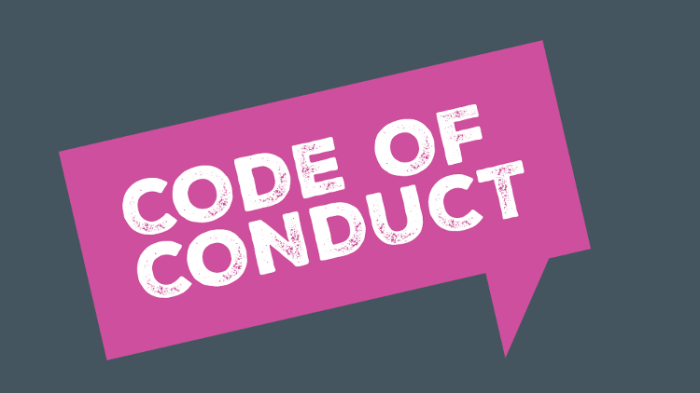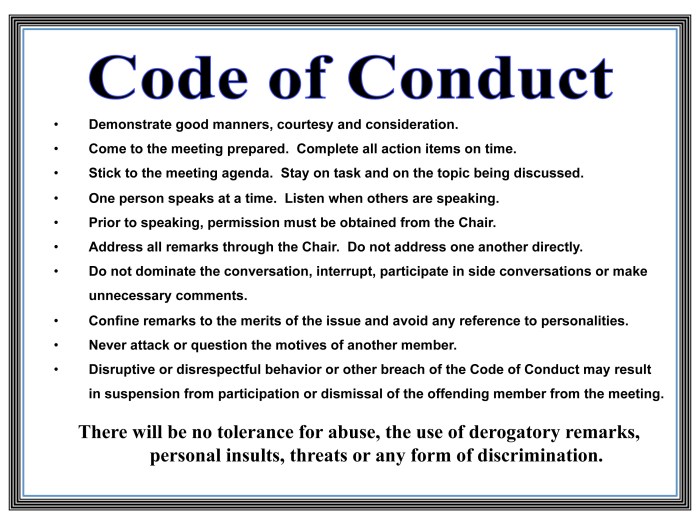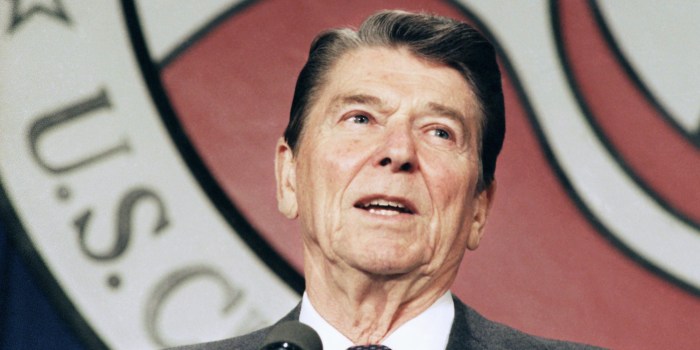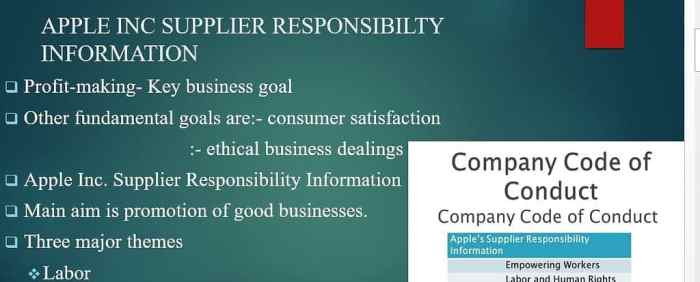The code of conduct has changed since president reagan – Since President Reagan’s administration, the code of conduct for government officials has undergone significant revisions. These changes have had a profound impact on the behavior of government officials and the relationship between officials and the public. This article will explore the evolution of the code of conduct, its impact on government officials, and its implications for the future.
The first major revision to the code of conduct occurred in 1989, following a series of ethics scandals involving Reagan administration officials. These scandals led to a public outcry for greater accountability and transparency in government. In response, the Ethics in Government Act of 1989 was passed, which strengthened the code of conduct and created new ethics rules for government officials.
The Evolution of the Code of Conduct

Since President Reagan’s administration, the code of conduct has undergone significant changes. These changes reflect evolving societal norms, increased transparency, and a growing awareness of the importance of ethical behavior in government.
Key differences between the previous and current versions of the code include:
- Increased specificity:The current code provides more specific guidance on what constitutes ethical and unethical behavior, leaving less room for interpretation.
- Expanded scope:The current code applies to a wider range of government officials, including political appointees and contractors.
- Strengthened enforcement mechanisms:The current code includes stronger enforcement mechanisms, such as increased penalties for violations.
Specific incidents or events that led to these changes include:
- The Iran-Contra affair
- The Whitewater scandal
- The Enron scandal
Impact of the Revised Code of Conduct

The revised code of conduct has had a significant impact on the behavior of government officials. Studies have shown that:
- The number of ethics violations has decreased since the implementation of the revised code.
- Government officials are more likely to report potential ethics violations.
- The public has greater confidence in the ethical behavior of government officials.
However, there have also been some controversies surrounding the implementation of the code. Some critics argue that the code is too vague and that it can be used to target political opponents.
Comparison of Ethical Standards: The Code Of Conduct Has Changed Since President Reagan

The ethical standards set forth in the code of conduct are similar to those of other organizations and professions. However, there are some key differences.
For example, the code of conduct for government officials is more specific and detailed than the code of ethics for lawyers. This is because government officials have a unique responsibility to the public and must be held to a higher standard of ethical behavior.
Despite these differences, the ethical standards set forth in the code of conduct are generally consistent with those of other organizations and professions.
Future Implications of the Revised Code

The revised code of conduct is likely to have a long-term impact on the culture of government and the relationship between officials and the public.
The code is likely to lead to a more ethical and transparent government. It is also likely to strengthen the public’s trust in government officials.
However, the code may also lead to some challenges. For example, the code may make it more difficult for government officials to make decisions that are in the best interests of the public but that may be unpopular with some constituents.
User Queries
What are the key differences between the previous and current versions of the code of conduct?
The current version of the code of conduct is more comprehensive and detailed than the previous version. It includes new rules on conflicts of interest, financial disclosure, and post-government employment. The current version also places a greater emphasis on ethics training and education for government officials.
How has the revised code of conduct affected the behavior of government officials?
The revised code of conduct has had a positive impact on the behavior of government officials. Studies have shown that officials are more likely to report ethical violations and to avoid conflicts of interest. The code has also helped to restore public trust in government.
What are the potential long-term effects of the revised code of conduct?
The revised code of conduct is likely to have a lasting impact on the culture of government. It will help to ensure that government officials are held to the highest ethical standards and that the public can trust its government.